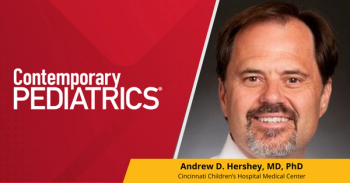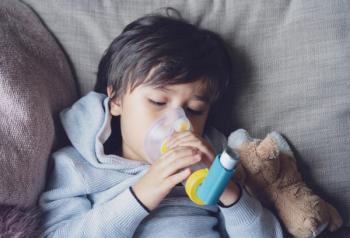
What questions do pediatricians need to be prepared for as the federal COVID-19 PHE expires?
Contemporary Pediatrics® Editorial Advisory Board member Andrew Schuman, MD, clinical assistant professor of pediatrics, Geisel School of Medicine, Dartmouth, shares some questions pediatricians can expect from parents as the federal COVID-19 public health emergency (PHE) expires.
For more coverage on
Contemporary Pediatrics®:
Hi, and welcome back to Contemporary Pediatrics®. I'm editor Joshua Fitch.
Andrew Schuman, MD:
I'm Andy Schuman. I'm a pediatrician at Dartmouth Hitchcock in Nashua, New Hampshire. I'm also a member of the Contemporary Pediatrics® editorial advisory board.
Contemporary Pediatrics®:
Dr. Schuman, good to see you as always. Thanks for joining us. As you know, the federal COVID-19 Public Health Emergency (PHE) has expired. First of all, on a general sense, what questions do pediatricians need to be ready for in light of this PHE exploration?
Schuman:
Thanks for asking Joshua. So, I imagine some parents will ask what the impact is, on the day-to-day practice of Pediatrics and the care they will receive from pediatricians. The short answer is they're probably not going to see any significant change. They already know that there will no longer be distribution of COVID home test kits. So, they are well aware of that. The question that pediatricians, you know, don't know yet is the long-term impact on patients and providers, given that a lot of responsibility is now being returned to the private insurers. So, what we don't know is what our compensation will be for telehealth visits. Private insurers have a way of trying to provide the most for the least amount of money, and the biggest impact that patients may not be aware of is that it is anticipated that the Medicaid rolls will significantly diminish and that will vary from state to state. So that's the biggest concern on the part of the American Academy of Pediatrics and secondarily, us providers as well.
Contemporary Pediatrics®:
You know, the potential cost burden you kind of mentioned there directly could impact these patients for at home COVID tests. How can that affect testing rates, records? Those are set to change in variations as well.
Schuman:
Having practiced in the trenches of pediatric care during the pandemic, what's very reassuring is that, due to changes in the variance due to immunizations, primarily among parents, due to unmasking, it seems that the impact of COVID on families and kids has diminished. Now, I say that cautiously because obviously, there are still children and adults with risk factors for severe disease. But in general, we're seeing kids who contract COVID who have mild respiratory infections, and hopefully it will sink into the background, much like fluids and so forth, and hopefully, we'll have eventually some antivirals and perhaps more effective vaccines. The acceptance rate of the COVID vaccines among pediatric patients has been very low because parents have been very cautious. It's particularly low among kids who are 6 and younger, with a very low vaccination rate. So hopefully better vaccines will be developed, more effective, better accepted by parents as well. So, we'll have to wait and see what the future brings.
Newsletter
Access practical, evidence-based guidance to support better care for our youngest patients. Join our email list for the latest clinical updates.








